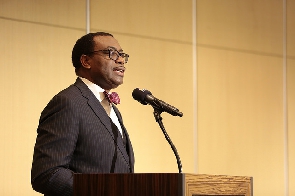The African Development Bank says it has disbursed $500m (N766.7bn) to Nigeria to advance critical power sector reforms.
Speaking during inaugural/inception workshop on Nigerian Battery Energy Storage Systems (BESS) feasibility study, AFDB’s Director General, Nigeria Country Department, Dr. Abdul Kamara, said the fund which is through its $1bn Economic Governance and Energy Transition Support Programme, seeks to help Nigeria have an improved and robust energy sector to provide electricity for its citizens.
Kamara said the second phase, which is on track, is part of the bank’s commitment to ensure electricity is accessible to every community in the country.
He said the BESS project, which is organized by the Transmission Company of Nigeria (TCN), is an important enabler to bring electricity to an estimated 90m people still without access to electricity.
“Africa holds almost Sixty Per cent (60%) of the world’s best solar resources, yet accounts for only Two Per cent (2%) of global energy storage capacity. That gap presents a challenge but more importantly, an opportunity. Battery storage is central to unlocking the full potential of our renewable energy resources and delivering stable, reliable power across the continent.”
He said the battery storage is already seeing inspiring progress in South Africa with a 1,400 Megawatt-hour battery storage project supporting grid stability and solar integration while Kenya’s Olkaria geothermal-battery hybrid is delivering reliable energy to millions.
“Now, Nigeria is poised to take a bold step in that same direction. In addition, under our One Million Dollar grant Africa Energy Sector Technical Assistance Programme (AESTAP), we’re supporting implementation of the Electricity Act, building state-level electricity markets, and strengthening governance.
On his part, the MD of TCN Engr. Dr. Sule Ahmed Abdulaziz said the feasibility study is both timely and presents an opportunity not only to understand the technical and commercial dimension of BSSE, but also to determine the institutional readiness, operational protocol and capacity building priority that will underpin successful implementation.
“From grid code and safety standard to workshop training and asset management framework, we must ensure that our planning today is comprehensive and forward-looking,” he said.
Business News of Thursday, 31 July 2025
Source: www.dailytrust.com













